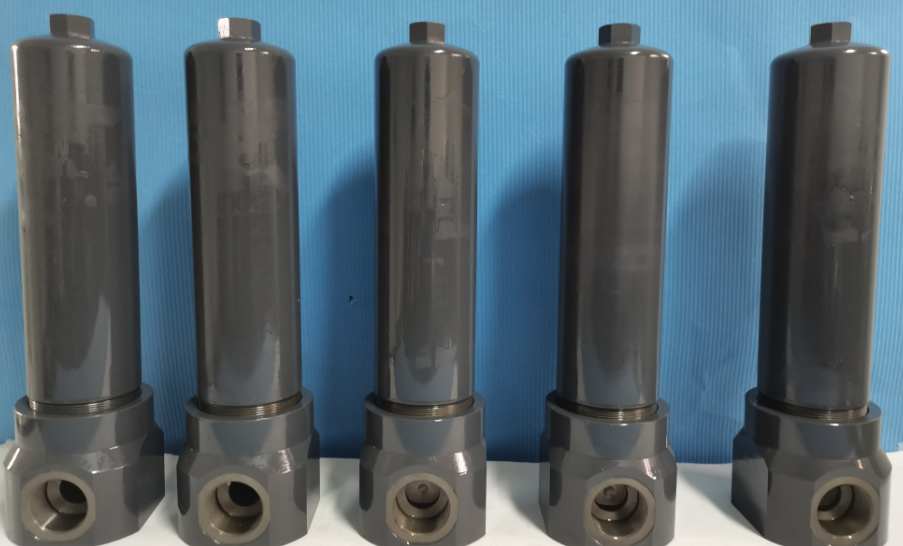Filters play a crucial role in hydraulic systems, serving several important functions that ensure the system operates efficiently and has a long service life. Here are some key reasons why filters are essential in hydraulic systems:
1. Contaminant Removal
- Particle Contaminants: Hydraulic fluids can contain particles such as dust, metal shavings, and dirt. These particles can cause abrasion and damage to hydraulic components like pumps, valves, and cylinders.
- Contaminant Types: Besides solid particles, hydraulic systems may also have contaminants like moisture, which can lead to corrosion and rusting of system components, or oil oxidation products that can thicken the fluid and reduce its effectiveness.
2. System Reliability and Longevity
- Preventative Maintenance: By removing contaminants, filters help prevent premature wear and tear on hydraulic components, thereby extending their operational life.
- Reduced Downtime: Systems with effective filtration experience fewer breakdowns and less frequent maintenance, leading to reduced downtime and lower maintenance costs.
3. Efficiency and Performance
- Optimal Fluid Viscosity: Clean hydraulic fluid maintains its intended viscosity, ensuring efficient operation of the system. Contaminated fluid can alter viscosity, leading to reduced efficiency and potential overheating.
- Pressure Stability: Filters help maintain consistent pressure throughout the system by preventing the buildup of contaminants that could otherwise clog passages and restrict flow.
4. Protection of Components
- Sensitive Components: Many hydraulic systems include sensitive components such as servo valves and control systems that require clean fluid to function correctly. Filters protect these components from contamination.
- Sealing Effectiveness: Clean fluid helps maintain the integrity of seals and O-rings, preventing leaks and maintaining system pressure.
5. Environmental Impact
- Fluid Disposal: Using filters reduces the need for frequent fluid changes, which in turn minimizes the environmental impact associated with disposing of used hydraulic fluid.
- Reduced Waste: Efficient filtration systems contribute to sustainability by reducing waste and the consumption of replacement parts.
6. Safety
- Operational Safety: Contaminated hydraulic fluid can cause erratic behavior of system components, posing safety risks. Proper filtration ensures smooth and predictable operation, enhancing overall safety.
- Fire Hazard Reduction: Clean fluid is less likely to catch fire, especially if it contains fewer contaminants that could act as ignition sources or contribute to fluid degradation.
7. Cost Savings
- Long-Term Savings: While there is an upfront cost associated with purchasing and installing filters, the long-term savings from reduced maintenance, fewer repairs, and extended component life often outweigh these initial expenses.
- Avoidance of Major Repairs: Preventing contamination-related damage can avoid the high costs associated with major repairs or even complete system replacements.
Conclusion
In summary, filters are indispensable in hydraulic systems for maintaining fluid cleanliness, protecting components, ensuring system reliability, improving performance, and promoting safety. Investing in high-quality filtration solutions ultimately leads to cost savings and enhanced operational efficiency, making them a critical aspect of hydraulic system design and maintenance.
Quote Inquiry Contact us!

